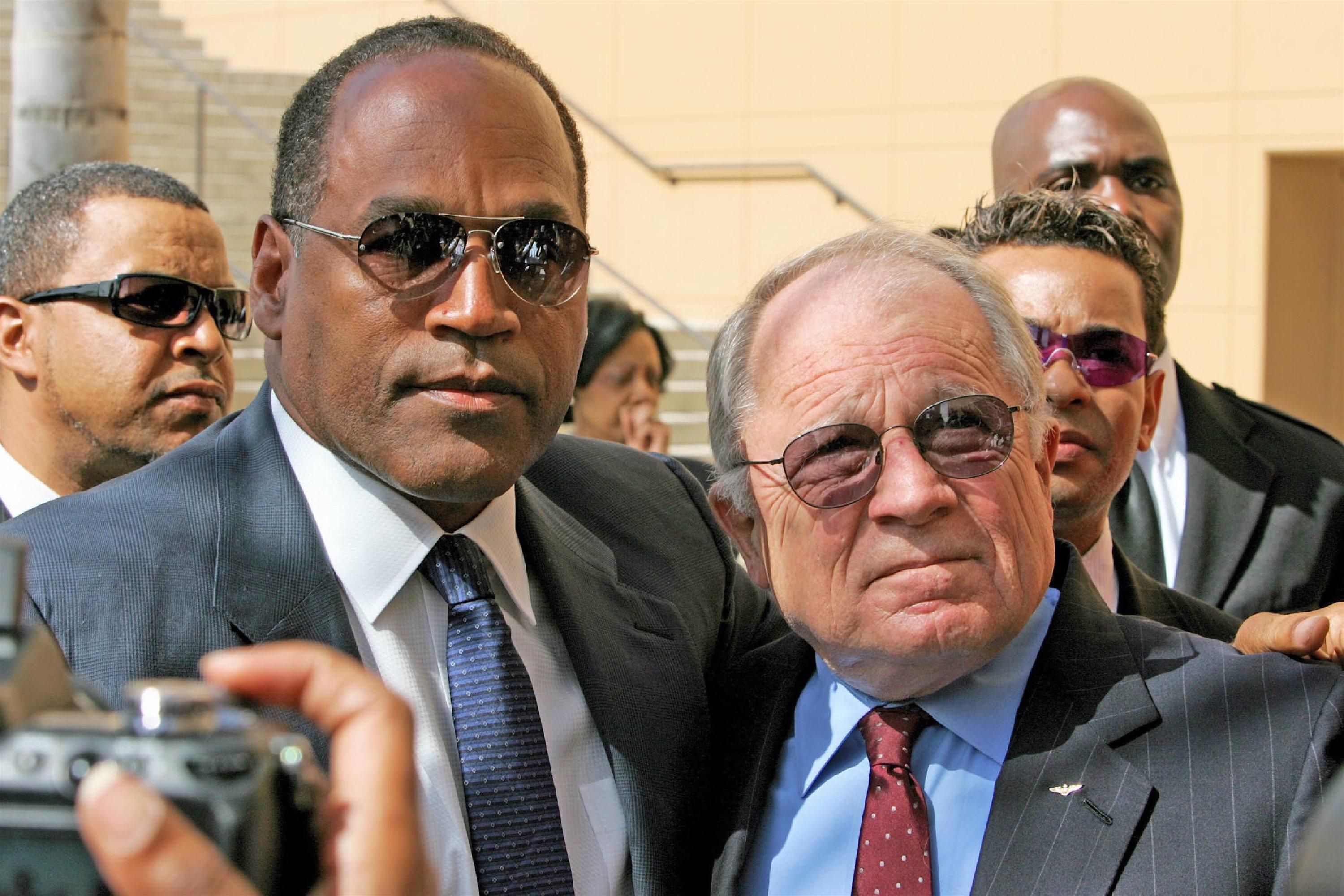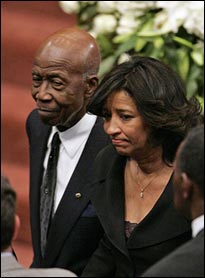Known for his charismatic courtroom presence and groundbreaking strategies, Cochran became a household name during the infamous O.J. Simpson trial. But his legacy extends far beyond that single case. As a trailblazer for civil rights and criminal defense, Cochran dedicated his life to advocating for those who had been marginalized or wronged by the system. His ability to weave compelling narratives in courtrooms earned him a reputation as one of the most formidable attorneys of his time. Born in Shreveport, Louisiana, in 1937, Johnnie Cochran grew up during a period of intense racial segregation and discrimination. These early experiences shaped his worldview and fueled his passion for fighting injustice. After earning his law degree from Loyola University, Cochran began his career as a deputy city attorney in Los Angeles. However, it wasn’t long before he realized that his true calling lay in defending individuals who were often overlooked or mistreated by the legal system. Over the decades, Cochran built a reputation as a champion of the underdog, taking on high-profile cases that challenged societal norms and exposed systemic flaws. From his early days as a public defender to his later years as a legal powerhouse, Johnnie Cochran left an indelible mark on the legal profession. His famous slogan, “If the glove doesn’t fit, you must acquit,” became a cultural touchstone and highlighted his knack for distilling complex legal arguments into memorable soundbites. Cochran’s work not only reshaped public perceptions of the justice system but also inspired countless aspiring lawyers to follow in his footsteps. Today, his legacy continues to influence the fight for fairness and equality in courts across America.
Table of Contents
- Biography of Johnnie Cochran
- Personal Details and Bio Data
- Why Did Johnnie Cochran Become a Lawyer?
- What Were Johnnie Cochran's Major Achievements?
- How Did Johnnie Cochran Change the Legal System?
- The O.J. Simpson Trial: A Defining Moment
- Johnnie Cochran's Philosophy on Justice
- Frequently Asked Questions
Biography of Johnnie Cochran
Johnnie L. Cochran Jr. was born on October 2, 1937, in Shreveport, Louisiana, into a family deeply rooted in the African American community. His father worked as an insurance salesman, while his mother was a homemaker. Growing up in the segregated South, Cochran witnessed firsthand the injustices faced by Black Americans. These early experiences instilled in him a lifelong commitment to fighting for equality and justice.
After moving to Los Angeles with his family, Cochran excelled academically and graduated from Los Angeles High School. He went on to attend the University of California, Los Angeles (UCLA), where he earned a bachelor’s degree in business administration. Cochran then pursued his law degree at Loyola University School of Law, graduating in 1963. His early career as a deputy city attorney in Los Angeles exposed him to the harsh realities of the criminal justice system, prompting him to transition into private practice and focus on civil rights cases.
Read also:Aaradhya Bachchan Health Update Latest Insights And Lifestyle Tips
Over the years, Cochran’s career skyrocketed as he took on increasingly high-profile cases. His ability to connect with juries and craft persuasive arguments made him one of the most sought-after attorneys in the country. Beyond his professional accomplishments, Cochran was known for his warmth, humor, and unwavering dedication to his clients. His legacy as a legal titan and advocate for the oppressed endures to this day.
Personal Details and Bio Data
| Full Name | Johnnie L. Cochran Jr. |
|---|---|
| Date of Birth | October 2, 1937 |
| Place of Birth | Shreveport, Louisiana, USA |
| Date of Death | March 29, 2005 |
| Education | University of California, Los Angeles (UCLA); Loyola University School of Law |
| Profession | Attorney, Legal Advocate |
| Notable Cases | O.J. Simpson Trial, Rodney King Civil Case, Abner Louima Case |
| Famous Quote | “If the glove doesn’t fit, you must acquit.” |
Why Did Johnnie Cochran Become a Lawyer?
Johnnie Cochran’s decision to become a lawyer was deeply influenced by his upbringing and the societal challenges he faced as a Black man in mid-20th-century America. Growing up in the segregated South, Cochran witnessed the pervasive racism and inequality that plagued the legal system. These experiences ignited a fire within him to seek justice for those who were unfairly treated or silenced.
During his time as a deputy city attorney in Los Angeles, Cochran realized that the system often failed to protect marginalized communities. This realization prompted him to shift his focus toward criminal defense and civil rights advocacy. Cochran believed that the law could be a powerful tool for change, and he dedicated his career to using it to empower the powerless.
Key Influences on His Career Choice
- Growing up in a segregated society shaped his perspective on justice.
- Exposure to systemic racism during his early legal career.
- A desire to give a voice to those who were ignored by the legal system.
What Were Johnnie Cochran's Major Achievements?
Johnnie Cochran’s career was marked by numerous groundbreaking achievements that cemented his status as a legal icon. From securing acquittals in high-profile cases to advocating for civil rights, Cochran’s accomplishments transcended the courtroom and left a lasting impact on American society.
One of Cochran’s most notable achievements was his role in the O.J. Simpson trial, where he successfully defended the former football star against charges of murder. The trial captivated the nation and showcased Cochran’s unparalleled ability to craft a compelling narrative. His famous phrase, “If the glove doesn’t fit, you must acquit,” became a cultural phenomenon and highlighted his mastery of persuasive rhetoric.
Other Notable Achievements
- Representing Rodney King in a civil lawsuit against the city of Los Angeles after the police brutality incident.
- Advocating for Abner Louima, a Haitian immigrant who was brutally assaulted by New York City police officers.
- Founding the Cochran Firm, which continues to provide legal representation to marginalized communities.
How Did Johnnie Cochran Change the Legal System?
Johnnie Cochran’s influence on the legal system cannot be overstated. Through his innovative strategies and unwavering commitment to justice, he challenged long-standing norms and exposed systemic flaws within the justice system. Cochran’s work not only secured victories for his clients but also sparked broader conversations about race, inequality, and police accountability.
Read also:Is Morgan Ortega Leaving Fox News The Full Story Behind The Speculation
One of Cochran’s most significant contributions was his ability to humanize defendants in the eyes of juries. By focusing on the personal stories of his clients, he shifted the narrative from guilt or innocence to larger issues of fairness and justice. This approach resonated with jurors and set a new standard for criminal defense attorneys.
Impact on Civil Rights
- Raised awareness about police misconduct and racial profiling.
- Inspired reforms in how law enforcement agencies handle cases involving minority communities.
- Encouraged future generations of lawyers to pursue careers in civil rights advocacy.
The O.J. Simpson Trial: A Defining Moment
The O.J. Simpson trial was a watershed moment in Johnnie Cochran’s career and a defining chapter in American legal history. As the lead defense attorney, Cochran faced immense pressure to prove Simpson’s innocence in a case that had captured the nation’s attention. His team’s meticulous preparation and strategic brilliance ultimately led to Simpson’s acquittal, cementing Cochran’s reputation as a courtroom mastermind.
Beyond the verdict, the trial highlighted critical issues such as racial bias in the justice system and the role of celebrity in legal proceedings. Cochran’s ability to frame the case as a referendum on police misconduct and systemic racism resonated with millions of Americans. The trial remains a subject of debate and analysis to this day.
Johnnie Cochran's Philosophy on Justice
At the heart of Johnnie Cochran’s philosophy was the belief that everyone deserves a fair trial, regardless of their background or circumstances. He often emphasized the importance of empathy, integrity, and perseverance in the pursuit of justice. Cochran’s approach to lawyering was rooted in his deep understanding of human nature and his ability to connect with people from all walks of life.
Cochran’s legacy extends beyond his courtroom victories. He inspired countless individuals to stand up against injustice and fight for their rights. His famous quote, “Justice for all is a slogan, not a reality,” underscores his commitment to making the legal system more equitable and inclusive.
Frequently Asked Questions
What was Johnnie Cochran’s most famous case?
Johnnie Cochran’s most famous case was the O.J. Simpson trial, where he served as the lead defense attorney. The trial captivated the nation and showcased Cochran’s exceptional legal skills.
How did Johnnie Cochran impact civil rights?
Johnnie Cochran impacted civil rights by exposing systemic flaws in the justice system and advocating for marginalized communities. His work on cases like Rodney King’s civil lawsuit brought attention to issues of police brutality and racial profiling.
What is Johnnie Cochran’s lasting legacy?
Johnnie Cochran’s lasting legacy is his unwavering commitment to justice and equality. He inspired future generations of lawyers and left an indelible mark on the legal profession.
For more information on Johnnie Cochran’s life and career, visit Britannica’s biography.

